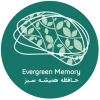Cognitive rehabilitation is a form of therapy that helps individuals with cognitive impairments to improve their cognitive abilities, such as attention, memory, problem-solving, and decision-making. Cognitive rehabilitation can benefit both healthy individuals who want to enhance their cognitive performance and those who have cognitive disorders, such as Alzheimer’s disease, traumatic brain injury, stroke, and attention deficit hyperactivity disorder (ADHD).
Cognitive rehabilitation for healthy people
Cognitive rehabilitation is not only for individuals with cognitive disorders but also for healthy people who want to maintain or improve their cognitive abilities. Age-related cognitive decline is a natural process, and it affects everyone to some degree. However, cognitive training can help to slow down or even reverse age-related cognitive decline. Cognitive training can also help healthy individuals to enhance their cognitive performance in specific areas, such as working memory, attention, and executive function.
Working memory is the ability to hold and manipulate information in your mind for a short period. It is essential for everyday tasks such as following directions, remembering phone numbers, and solving problems. One effective way to improve working memory is to practice dual n-back training. Dual n-back training involves simultaneously memorizing auditory and visual stimuli and recalling them in sequence. Dual n-back training has been shown to improve working memory, fluid intelligence, and attention in healthy individuals.
Attention is the ability to focus on specific stimuli while ignoring others. It is crucial for performing tasks that require concentration, such as reading, studying, and driving. One way to improve attention is to practice mindfulness meditation. Mindfulness meditation involves paying attention to the present moment and accepting it without judgment. Mindfulness meditation has been shown to improve attention, memory, and emotional regulation in healthy individuals.
Executive function is the ability to plan, organize, and execute complex tasks. It is essential for goal-directed behavior, such as studying for an exam, completing a project, or managing finances. One way to improve executive function is to play strategy games, such as chess or bridge. Strategy games require players to plan ahead, anticipate the opponent’s moves, and adapt to changing situations. Playing strategy games has been shown to improve executive function, reasoning, and problem-solving in healthy individuals.
Cognitive rehabilitation for disordered people
Cognitive rehabilitation can also benefit individuals with cognitive disorders, such as Alzheimer’s disease, traumatic brain injury, stroke, and ADHD. Cognitive rehabilitation aims to improve the individual’s functional abilities and quality of life by enhancing their cognitive abilities, compensating for their cognitive deficits, and promoting their cognitive reserve.
Alzheimer’s disease is a neurodegenerative disorder that affects memory, language, and visuospatial skills. Cognitive rehabilitation for individuals with Alzheimer’s disease aims to maintain their functional abilities and delay their cognitive decline. Cognitive rehabilitation programs for Alzheimer’s disease typically involve memory training, communication training, and problem-solving training. Memory training involves teaching individuals strategies to remember information, such as mnemonics, rehearsal, and association. Communication training involves teaching individuals to express their needs, preferences, and emotions effectively. Problem-solving training involves teaching individuals to identify and solve problems in everyday life.
Traumatic brain injury is a condition caused by a blow or jolt to the head that affects cognitive and behavioral functioning. Cognitive rehabilitation for individuals with traumatic brain injury aims to improve their cognitive abilities and functional outcomes, such as independence, social integration, and vocational status. Cognitive rehabilitation programs for traumatic brain injury typically involve cognitive remediation, compensatory strategies, and environmental modifications. Cognitive remediation involves retraining cognitive functions that have been impaired, such as attention, memory, and executive function. Compensatory strategies involve teaching individuals to use alternative strategies to compensate for their cognitive deficits, such as using a planner or a memory aid. Environmental modifications involve adapting the environment to facilitate the individual’s cognitive functioning, such as labeling drawers and cabinets.
Stroke is a condition caused by a disruption of blood flow to the brain, leading to cognitive and motor deficits. Cognitive rehabilitation for individuals with stroke aims to improve their cognitive abilities and functional outcomes, such as mobility, communication, and independence. Cognitive rehabilitation programs for stroke typically involve task-specific training, errorless learning, and attention training. Task-specific training involves practicing tasks that are relevant to the individual’s daily life, such as dressing, cooking, or using technology. Errorless learning involves minimizing errors during learning by providing cues, feedback, and prompts. Attention training involves improving attentional control, such as sustained attention, selective attention, and divided attention.
ADHD is a neurodevelopmental disorder that affects attention, impulsivity, and hyperactivity. Cognitive rehabilitation for individuals with ADHD aims to improve their executive function and behavioral outcomes, such as academic achievement, social skills, and self-regulation. Cognitive rehabilitation programs for ADHD typically involve cognitive training, behavioral interventions, and academic support. Cognitive training involves improving executive function, such as working memory, planning, and inhibition. Behavioral interventions involve teaching individuals to manage their behavior, such as setting goals, using self-reinforcement, and improving social skills. Academic support involves providing individuals with strategies to succeed in academic tasks, such as time management, note-taking, and studying skills.
Conclusion
Cognitive rehabilitation is a form of therapy that can benefit both healthy individuals who want to enhance their cognitive performance and those who have cognitive disorders, such as Alzheimer’s disease, traumatic brain injury, stroke, and ADHD. Cognitive rehabilitation can improve cognitive abilities, functional outcomes, and quality of life. Cognitive rehabilitation programs vary depending on the individual’s needs, goals, and abilities. However, they typically involve cognitive training, compensatory strategies, and environmental modifications. Cognitive rehabilitation is a promising field that can help individuals to maintain or regain their cognitive abilities and lead fulfilling lives.
